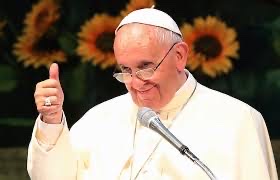The Gospel According to Canon 188.4: When the 1917 Code Becomes a Bible
There is a peculiar irony in watching The Kurgan—self-proclaimed Catholic apologist, self-appointed inquisitor of all things Vatican II—wag his finger at Protestants for their alleged heresy of sola scriptura, only to turn around and wield the 1917 Code of Canon Law as if it were Holy Writ. Indeed, one might be forgiven for thinking that somewhere between Genesis and the Apocalypse, he found tucked neatly inside his Bible a golden tab labeled “Canon 188.4,” written in bold, magisterial font, as if Christ Himself had proclaimed it on the Mount.
For all his thunderous condemnations of sola scriptura, The Kurgan operates under a strange variant of that very principle. Let’s call it sola codex: the belief that salvation history—and ecclesiology itself—was sealed in Latin in 1917, and that all theological disputes are to be solved not by Scripture, not by Sacred Tradition, not even by the Magisterium, but by his personally infallible reading of an ecclesiastical law book from the reign of Benedict XV.
The Bible? Rarely quoted. Christ’s own words about the Church enduring until the end of time? Dismissed as vague poetry. Apostolic succession? Shrugged off if it gets in the way of his preferred excommunications. The visible Church? Only valid if it agrees with his personal interpretations of Canons written to govern disciplinary—not doctrinal—matters.
You will search in vain through his posts, blogs, and books for serious exegesis of Scripture. He will not wrestle with Christ’s promise that “the gates of Hell shall not prevail” against His Church (Mt 16:18), nor will he reckon with St. Paul’s words about the Church being the pillar and foundation of truth (1 Tim 3:15). Instead, his highest theological court is Canon 188.4—a disciplinary provision meant to guide ecclesiastical governance, not to rewrite two millennia of apostolic continuity.
He attacks Protestants for not submitting to the Church, but cannot name a single bishop to whom he submits. He derides the Reformation for splintering Christianity, even as he excommunicates the entire visible Catholic Church post-1958 from his own personal dogma fortress.
This is not Catholicism. This is legalism draped in nostalgia and hubris. It is the ghost of the Church Militant held hostage by the Church Litigant. And in that courtroom, the Scriptures are inadmissible evidence if they contradict the Kurganian interpretation of pre-conciliar paperwork.
His "gospel" is not Matthew, Mark, Luke, or John. It is Canon 188.4, verse 1: “If thou even thinkest heresy, thou art automatically decanonized, deinstitutionalized, and de-Catholicized.”
But the real Gospel speaks of mercy, unity, and a Church against which Hell itself will not prevail. The Kurgan’s church, built on the sand of self-interpretation and pseudo-juridical absolutism, falls with every wind of critique.
So let us ask, plainly: who really holds to sola scriptura, and who has replaced the Word with a code?
Because if his actions are any guide, The Kurgan’s Bible doesn’t start with “In the beginning…”—it starts with “In the 1917 Code…”

Comments
Post a Comment